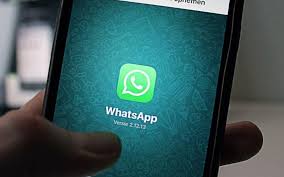WhatsApp Default App Feature Rolls Out to iPhones
WhatsApp has introduced a major change for iPhone users worldwide. With the latest iOS update, Apple now allows WhatsApp to be set as the default messaging app, a feature previously restricted to European Union users. This change arrived with WhatsApp’s iOS update 25.8.74 on March 27, surprising many users globally.
This update means users no longer need to rely solely on iMessage for texting. Instead, WhatsApp can now serve as the primary messaging app, making communication even more convenient for millions of users.
How to Set WhatsApp as Your Default Messaging App
If you want to make WhatsApp your default messaging service on your iPhone, follow these simple steps:
- Update WhatsApp to the latest version (25.8.74) from the App Store.
- Open the Settings app on your iPhone.
- Navigate to Apps and select Default Apps from the top section.
- Look for the Messaging section.
- Choose between Messages (iMessage) or WhatsApp as your default app.
Once selected, WhatsApp will become the primary messaging service for your iPhone. Any message sent will automatically go through WhatsApp instead of iMessage, as long as the recipient also uses the app.
WhatsApp as a Default Calling App
In addition to messaging, the app can now be set as the default calling app. Before this update, iPhone users could choose between FaceTime, Zoom, or the built-in Phone app. Now, WhatsApp joins the list of calling apps that can be set as default.
This means that when selecting a contact and tapping on their number, the call will automatically be placed via WhatsApp instead of the default Phone app, making it more seamless for those who primarily use WhatsApp for calls.
What This Means for iPhone Users
This update is a significant step toward more personalized app preferences for iPhone users. Until now, Apple had been restrictive about which default apps users could change. This shift allows users to have greater flexibility and enhances the experience of those who prefer WhatsApp over iMessage or FaceTime.
For users outside the U.S., where WhatsApp is the dominant messaging app, this change is a big deal. Many people rely on WhatsApp for daily communication, and now they can integrate it more deeply into their iPhone experience.
However, in the U.S., where iMessage dominates due to the preference for blue bubbles, this update may not have the same impact. Many American iPhone users might still prefer Apple’s built-in messaging service, but for those who frequently communicate with international contacts, this change could be beneficial.
Will This Change Affect Other Messaging Apps?
The decision to allow the app as the default app could pave the way for other messaging apps to receive similar treatment. It raises the question: Will Apple allow other third-party apps like Telegram or Signal to be set as default messaging apps in the future?
Apple has long faced pressure from regulators over its walled-garden ecosystem, and this move could indicate a more open approach. Whether Apple will extend this flexibility to more apps remains to be seen.
How This Impacts Privacy and Security
One concern that arises with this change is privacy and security. Apple’s iMessage is end-to-end encrypted, and its tight integration with iOS ensures a secure experience. WhatsApp, while also encrypted, has different data policies, especially regarding metadata collection.
Users should be aware of these differences when making the switch. While WhatsApp offers encryption, Apple’s iMessage encryption is built into the iPhone’s ecosystem, making it a more seamless experience in terms of security.
Final Thoughts: A Step Towards More User Control
Apple allowing WhatsApp to be set as a default messaging app marks a significant change in its approach. It gives users more control over their preferred messaging platforms while making communication more seamless for those who rely on WhatsApp.
For iPhone users who primarily communicate via WhatsApp, this update is a welcome change. It simplifies the messaging and calling experience, reducing the extra steps previously needed to use WhatsApp over Apple’s native apps.
As Apple continues to refine its policies around third-party apps, we might see even more options for users in the future. For now, this change is a win for WhatsApp users who want a more integrated experience on their iPhones.







Leave a Reply